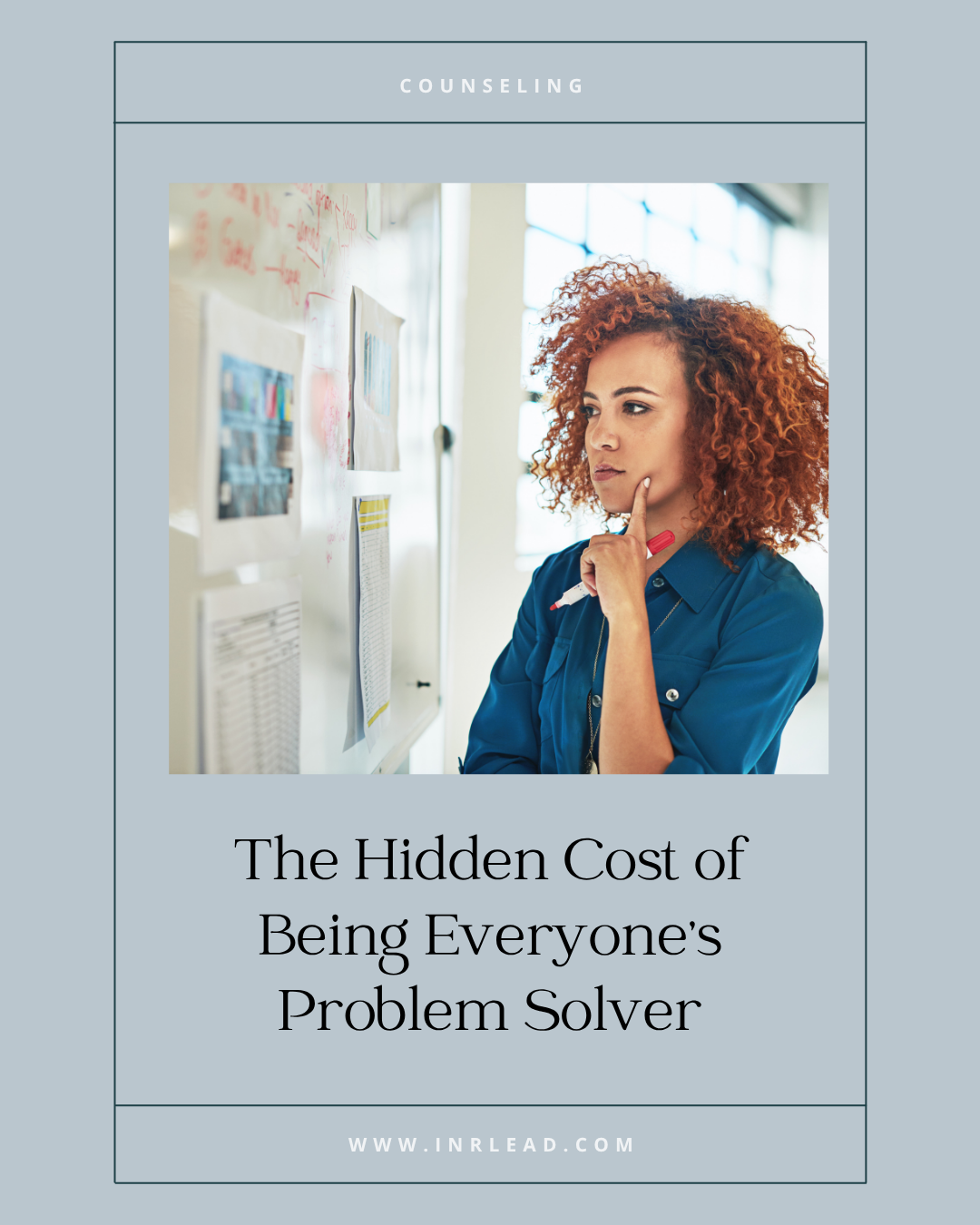The Hidden Cost of Being Everyone's Problem Solver
Do you find yourself constantly fielding phone calls from friends in crisis? Are you the one everyone turns to when they need advice, a shoulder to cry on, or someone to fix their latest drama? While being helpful and caring are beautiful qualities, there's a hidden cost to always being everyone's go-to problem solver that most people don't recognize until they're completely burned out.
The Rescuer's Dilemma
The "rescuer" role often develops early in life. Maybe you were the child who mediated your parents’ fights, took care of younger siblings, or learned that your worth was tied to how much you could help others. This protective pattern served you well at one time—it kept you safe, connected, and valued in your family system.
But what happens when this childhood survival strategy becomes your adult default mode?
Your nervous system stays constantly activated, scanning for people who need rescuing. You might feel guilty relaxing when others are struggling, or experience anxiety when you can't immediately solve someone's problem. Your body holds this tension—tight shoulders from carrying everyone’s burdens, a racing heart when your phone buzzes with another crisis, or exhaustion that sleep doesn’t seem to cure.
The Somatic Signals
Your body often knows you're overextended before your mind catches up. Pay attention to these physical cues:
Shoulder and neck tension from literally "carrying" others' problems
Chest tightness or shallow breathing when someone shares their struggles
Stomach knots when you can't immediately fix someone's situation
Fatigue that rest doesn't relieve from emotional over-giving
Difficulty saying no even when your body contracts at the request
These sensations aren't just stress—they're your nervous system's way of saying the rescuer role is costing you more than you realize.
The Approval Connection
Often, the compulsion to rescue others is deeply connected to our need for approval and belonging.
We unconsciously believe: "If I don't help, they'll leave," or "My value comes from being needed." This creates what I call the "approval trap"—where your sense of worth becomes dependent on constantly proving your usefulness to others.
The irony is that chronic rescuing often pushes people away. Friends may start to see you as controlling or overwhelming. Family members might become dependent rather than developing their own resilience. And you end up feeling resentful about giving so much while receiving so little in return.
Breaking Free from the Rescuer Pattern
Recovery from chronic rescuing isn't about becoming selfish or uncaring. It's about learning to help from a place of choice rather than compulsion and developing the capacity to witness others ‘struggles without immediately jumping in to fix them.
Start with body awareness: Before responding to someone's crisis, pause and check in with your physical sensations. Are you feeling tense, anxious, or compelled to act immediately? This pause creates space for conscious choice.
Practice the phrase: "That sounds really difficult. What do you think your options are?" This simple response validates their experience while inviting them to tap into their own problem-solving capacity.
Set energetic boundaries: You can care about someone without absorbing their emotions. Imagine a protective bubble around yourself when listening to others' problems—you can be present and compassionate without taking on their feelings as your own.
The Path Forward
Breaking free from the rescuer pattern is a journey, not a destination. It requires rewiring deeply ingrained neural pathways and learning to find your worth in simply being yourself, not in what you do for others.
If you recognize yourself in this pattern, consider taking the "Which Protective Role Am I?" assessment to gain deeper insight into your unique approval-seeking strategies. Understanding your protective roles is the first step toward making conscious choices about when and how you offer help.
Remember: You can be a caring, supportive person without sacrificing your own well-being. The world needs your gifts, but it also needs you to be resourced, boundaried, and authentic in how you share them.

